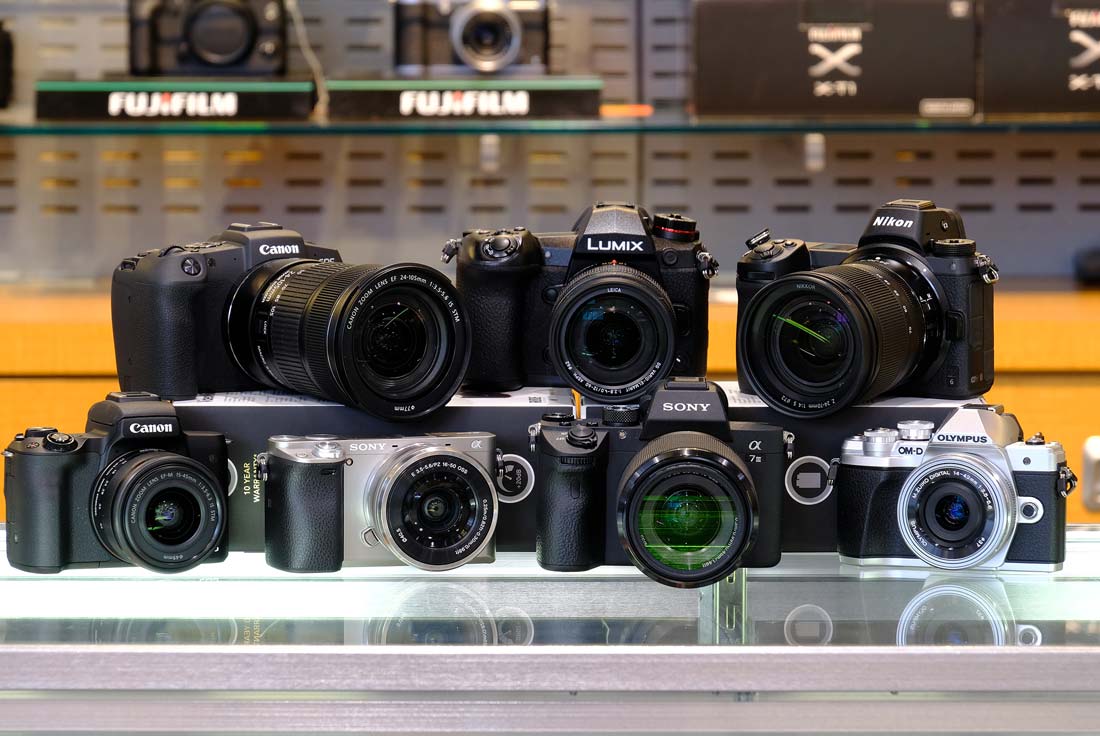By Kim Fogle
When you first walk into a camera shop, the selection can be overwhelming. Which ones do you look at? What features do you want? Should you consider a digital compact, a DSLR, or a mirrorless camera? Should you throw your hands up in despair and go home? No. Not to the last bit, anyway. There are a lot of cameras out there, but if you stop to consider what you really need the camera to do the selection quickly narrows down.
First, think of the camera as a tool.
That’s all it really is. A big, fancy tool. Sure, it has a lot of little buttons and gadgets, and some of them have wireless communication and GPS capabilities, but deep down in its little, circuit-wrapped heart, the camera is a tool to make pictures.
Pretend you’re going to buy a hammer. At the hardware store, you look at all the hammers up there on the wall, what they’re made of, the job they're designed to do, and how much they cost. Before you grab one, think to yourself, “I’m just putting a few pictures up in the living room. Do I need the $100 hammer?” With that thought in mind, you pass by the expensive hammers and buy one for $15. It does the job.
Now think of the other end. You’re a carpenter who uses a hammer all day, every day. That hammer is going to undergo a lot of use and abuse, so it’s not a good idea to pick up the $15 hammer. For the carpenter who needs a tool that’s going to stand up to anything, the expensive hammer that will last for years makes sense.
Cameras are the same. If what you want to do is take nice pictures of the kids on birthdays, holidays, and vacations, then maybe you want to look at a basic D-SLR or mirrorless camera. If on the other hand, you’re going to be hauling the camera up mountains or shooting 20,000 or more photographs each year, then you’re going to want a heavier-duty model. Or maybe you just want to catch quick pictures of your friends doing those crazy things, and the zoom on your smartphone just isn’t doing the trick. An inexpensive little pocket camera might be what you need.
So before that vast array of cameras drives you to despair, ask yourself a few quick questions.
1. What do I want to take pictures of?
2. How much do I want to spend?
3. Do I want something quick and easy, or do I want a camera I can grow into as my skills improve?
By taking a few minutes to stop and consider your photographic needs, you can cut out a lot of the confusion when choosing a camera. If you’re still feeling a little lost, the friendly experts at your local camera shop can help you pick the right camera for your needs.





